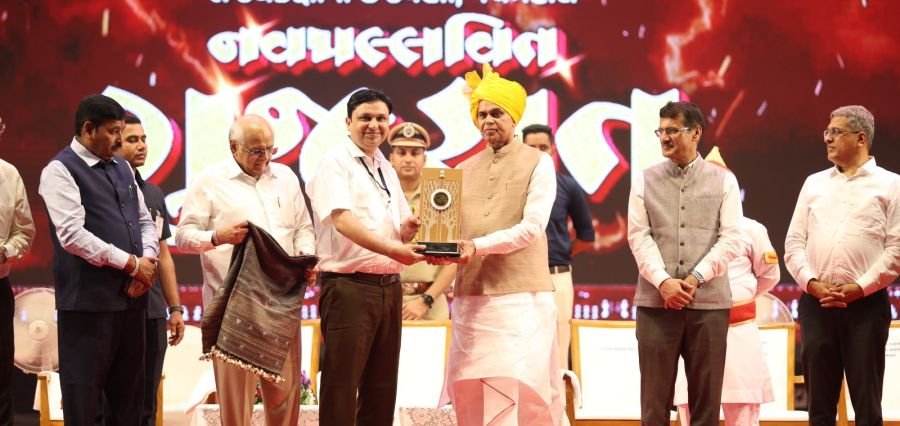Uncertainty is back again and prevalent across most if not all sectors especially for small and medium business owners and managers. In today’s fast-paced, competitive and ever-evolving business environment, resiliency has emerged as a key factor for driving success. Leaders and entrepreneurs face increasing pressure to navigate disruptions, manage teams, retain talent and maintain productivity amidst a gathering storm.
Resiliency in short is the ability to be flexible and adapt, recover, and ultimately thrive in challenging circumstances and is not simply just a personal attribute but a collective strength built on solid organizational culture that can be nurtured and cultivated within organizations. By fostering a culture of support and recovery, businesses can empower employees, enhance well-being, and improve overall performance (Cooper et al., 2014).
The Importance of Resilience in the Workplace
Workplace resilience is directly linked to improved employee performance, reduced turnover, and greater organizational adaptability. Resilience helps employees manage stress effectively, leading to higher job satisfaction and engagement. In times of economic challenges or crises, resilient organizations are better equipped to adapt and recover, highlighting the importance and the need for proactive measures to build resilience.
For organizations in the Middle East, resilience has taken on increased importance due to ongoing regional instability, geopolitical tensions, and economic uncertainty. The Middle East Crisis and Resilience Survey 2023 by PwC highlights that 95% of regional businesses experienced a major disruption in the past year, yet this is not taking into accounts the raging geopolitical tensions and war which will otherwise quintessentially lead to a higher percentage. 91% also stated resilience as one of their most important organizational priorities. Organizations prioritizing resilience strategies were found to be better equipped and prepared to recover and sustain growth, despite these challenges. This underscores the need for organizational leadership in the Middle East to adopt resilience-focused frameworks tailored to their unique cultural and economic contexts, also as preventative means due to unfortunate trends in the region.
For leaders and entrepreneurs, resilience is not just about enduring hardships and survival but also about leveraging adversity to fuel creativity and innovation. Resilient teams with the right support, appropriate channeling, focus, determination, and reduction in psychological stressors demonstrate greater creativity, productivity and collaboration when facing adversities and managing setbacks. Furthermore, research found that resilience significantly predicts mental health outcomes, underscoring its role in fostering sustainable performance.
The Role of Leadership in Building Team and Organizational Resilience
Leaders are encouraged to focus on developing a resilient workforce and in turn a resilient organization. A resilient leader first needs to model adaptability, optimism, and problem-solving, creating an environment where challenges are viewed as opportunities for growth. Research supports this, emphasizing the role of authentic leadership in promoting psychological capital, which includes resilience, hope, optimism, and self-efficacy (Rego et al., 2012).
Trauma-informed theories provide a critical lens for leaders to build resilience (Middleton et al., 2015), particularly in workplaces where individuals may have experienced personal or collective trauma or whereby the trauma gets recycled through connections, interactions or associations. In the Middle East, where conflicts, displacement, and social upheavals are viewed as constants, heavily impacted individuals and communities, a trauma-informed approach is particularly relevant. This is the key ingredient that should be acknowledged, and analyzed prior to developing organizational resiliency, leaders must recognize the effects of trauma on employee behavior, stress levels, and productivity, and respond with empathy, creating environments that facilitate healing. Trauma-informed leadership practices include creating safety, building trust and transparency, providing peer support, promoting empowerment and collaboration, recognizing cultural and historical contexts. Organizational leadership in the Middle East must respect cultural values and the collective historical and perhaps ongoing traumas while tailoring resilience strategies that align with these sensitivities, for instance, creating opportunities for group activities and community-based support reflective of cultural norms.
Building a Culture of Support
A resilient workplace is underpinned by a culture of support, where employee well-being is equally prioritized alongside organizational goals. Leaders can create this culture by implementing initiatives that promote mental health, flexibility, and recovery. The World Health Organization (WHO) identifies burnout as a significant concern, with an increasing need for organizations to address stress and prevent employees’ burnout, leadership can help organizations move from burnout to trauma informed-resilience (Elisseou et al., 2024).
In the Middle East, workplace well-being programs are gradually gaining traction, especially as younger generations enter the workforce with different perspectives and higher expectations for work-life balance. Initiatives such as flexible working hours, mental health awareness campaigns, and family-friendly policies resonate with cultural norms that prioritize familial relationships and collective support.
Key elements of a supportive workplace include:
- Work-Life Balance Initiatives: New working-based systems as implemented in the Emirate of Sharjah, citizens utilizing a 4-day working week has had a very positive impact on employee satisfaction, increasing motivation and organizational performance (Ayoub & Al-Marri, 2024).
- Trauma-Informed Resilience Training: Implement training programs designed to build awareness of stress and trauma while fostering healthy coping mechanisms. These programs may include art therapy, mindfulness practices, cognitive-behavioral strategies, and culturally tailored support groups within organizations. Research supports the effectiveness of trauma-sensitive workplaces in enhancing employee recovery and engagement. Studies have shown that trauma-informed training improves staff knowledge, attitudes, and behaviors, with these improvements often sustained through trauma-informed organizational interventions. Additionally, such interventions have been associated with statistically significant positive outcomes (Purtle, 2020).
- Peer Support Networks: Establishing peer support networks fosters a sense of community and belonging among employees. In the Middle East, such networks resonate deeply with the region’s collective culture, and cultural emphasis on collective success and interconnected relationships. Critical Incident Stress Management (CISM) models often incorporate both mental health professionals and trained peers to provide emotional support during critical incidents. Peer responders, or diffusers, have been shown to effectively aid in the emotional recovery of employees following traumatic events. This approach not only enhances resilience but also reduces workplace disruptions, fosters skill transfer to address broader challenges, and contributes to a healthier organizational culture. These networks provide a practical framework for leveraging peer support to enhance well-being, collaboration, and overall workplace health (Freeman and Carson, 2007).
Recovery and Growth: Moving Beyond Setbacks
Resilience extends beyond overcoming immediate challenges; it involves learning, growth, and recovery. Organizations that invest in post-adversity reflection and support, create a cycle of continuous development with improvement. Leaders can implement debrief sessions following for example challenging projects or setbacks to identify lessons learned with opportunity to identify strengths and even celebrate progress (Serrat and Serrat, 2017).
Trauma-informed recovery strategies emphasize patience and understanding. Leaders must recognize that employees recover at different rates and may require additional time or resources to regain confidence, equilibrium and productivity. Providing access to counseling services, culturally appropriate mental health resources, and structured recovery plans can foster long-term resilience.
Organizations adopting a growth mindset, the belief that abilities and performance can improve through effort, are more resilient in the face of failure. In the Middle East, this mindset complements the region’s ongoing drive for innovation and transformation, as seen in economic diversification efforts.
Building resilience in the workplace is a shared responsibility that begins with leadership and cascades down throughout the organization and become an integral part of the organization culture. Leaders and entrepreneurs must recognize that resilience is not an inherent trait but a skill that can be developed through support, recovery initiatives, and effective communication. Trauma-informed theories provide essential guidance for fostering resilience, particularly in contexts where adversity and uncertainty have shaped employee experiences. For organizations in the Middle East, resilience frameworks must reflect regional dynamics, cultural values, and collective approaches for success. By fostering an environment where employees feel valued, connected, and empowered, organizations can survive and even thrive in the most pressing circumstances. As businesses navigate an uncertain future, resilience will remain a cornerstone of sustainable success, innovation, and well-being.
About the Author: Sara Powell
Sara Powell HCPC, UK Reg, MBACP UK Reg, is a psychotherapist and director of ATIC Psychological Counselling Centre Dubai, with 15 years of clinical experience. She specializes in trauma, women’s health, and child development. Currently pursuing a PhD in International Psychology with a specialization in trauma, Sara collaborates with private and governmental agencies across the region.
References
Ayoub, N., & Al-Marri, M. (2024). The Effect of the New Working Days System on Employees Productivity in Sharjah. Journal of Human Resource and Leadership, 9(2), 65-76.
Cooper, C. L., Liu, Y., & Tarba, S. Y. (2014). Resilience, HRM practices and impact on organizational performance and employee well-being. The International Journal of Human Resource Management, 25(17), 2466–2471. https://doi.org/10.1080/09585192.2014.926688
Elisseou, S., Shamaskin-Garroway, A., Kopstick, A. J., Potter, J., Weil, A., Gundacker, C., & Moreland-Capuia, A. (2024). Leading organizations From burnout to trauma-informed resilience: A vital paradigm shift. The Permanente Journal, 28(1), 198.
Freeman, D. G., & Carson, M. (2007). Developing workplace resilience: The role of the peer referral agent diffuser. Journal of Workplace Behavioral Health, 22(1), 113-121.
Middleton, J., Harvey, S., & Esaki, N. (2015). Transformational leadership and organizational change: how do leaders approach trauma-informed organizational change… twice?. Families in Society, 96(3), 155-163.
Purtle, J. (2020). Systematic review of evaluations of trauma-informed organizational interventions that include staff trainings. Trauma, Violence, & Abuse, 21(4), 725-740.
PwC Middle East. (2023). Middle East Crisis and Resilience Survey 2023. PwC. https://www.pwc.com/m1/en/publications/middle-east-crisis-and-resilience-survey-2023.html
Rego, A., Sousa, F., Marques, C., & e Cunha, M. P. (2012). Authentic leadership promoting employees’ psychological capital and creativity. Journal of business research, 65(3), 429-437.
Serrat, O., & Serrat, O. (2017). Conducting after-action reviews and retrospects. Knowledge Solutions: Tools, Methods, and Approaches to Drive Organizational Performance, 823-825.
World Health Organization. (2019). Burn-out an “occupational phenomenon”: International Classification of Diseases. https://www.who.int/news/item/28-05-2019-burn-out-an-occupational-phenomenon-international-classification-of-diseases





